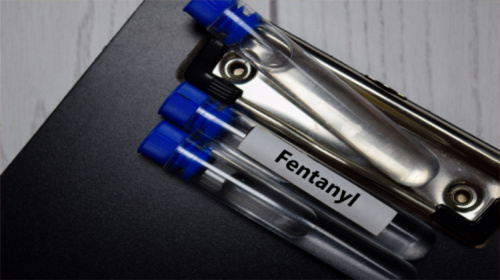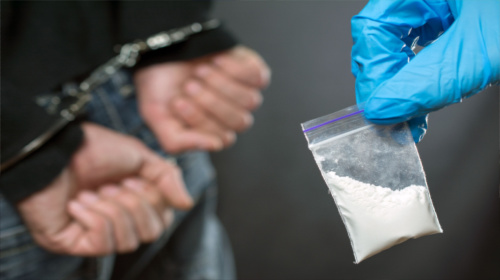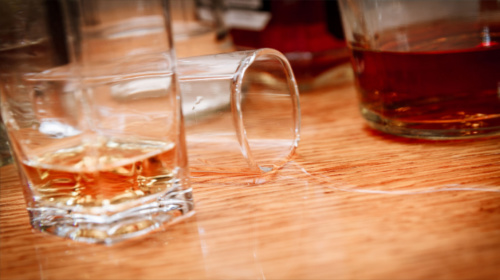Expert Insights
If you think kids don’t need to be monitored on social media, think again. It’s frighteningly easy for kids to log on to their social accounts, perform a quick search, click a few buttons, and order what they mistakenly believe are “safe” pharmaceuticals like OxyContin or Xanax. Days later, a package arrives in the mail containing deadly fentanyl-laced pills. A great example of this scheme is a recent case that came before the VA district attorney’s office, where three California-based drug traffickers pled guilty to supplying a VA man with staggering amounts of fentanyl-laced pills purchased on Snapchat and Instagram. That same batch of fentanyl was linked to two teenage overdoses in Wise County, Virginia.
~ Nikki Seay
How Much Does Drug Rehab Cost in Virginia?
Virginia is ranked 12th nationwide in terms of addiction treatment affordability, with an average cost of drug and alcohol rehab of $56,456 (without insurance).
- Medical detox is the most expensive, with an average cost of $139,185
- Long-term inpatient drug rehab in Virginia costs an average of $49,819
- Outpatient addiction treatment in Virginia costs an average of $8,278
- Outpatient methadone treatment is the most affordable, with an average cost of $7,355
The cost of treatment in Virginia depends on several factors, including:
- Treatment type: Do you need residential treatment or outpatient care?
- Duration of the program: This can range anywhere from 30 to 90 days, or longer depending on the severity of your substance use.
- Amenities offered: These range from necessities, such as toiletries and food, to luxury-style accommodations, which alter costs significantly.
- Location: Costs may vary significantly in the mountains, beach, or metropolitan areas.
- Insurance coverage: Plans can significantly lower your out-of-pocket costs.
- Alternative funding: You may be eligible for state funding, scholarships, or financing plans.
- Accreditation: Accredited rehabs in Virginia are held to higher standards of care, required to train staff to the highest skill levels available, and proven to treat clients using the best evidence-based practices in addiction therapy.
How to Pay for Drug Rehab in Virginia
As of 2024, there were over 280 drug rehab facilities across the state of Virginia. These facilities accept several payment methods. Of those treatment facilities, the following numbers reflect how many accept their respective payment methods:
Private Pay & Insurance
Health insurance is the most common way to pay for addiction treatment. If you have a plan that covers rehab facilities, be sure to talk to your insurance company to find treatment centers that are included in the plan’s network. That way you can maximize your coverage.
Some of the major insurance companies in Virginia include:
- Anthem Blue Cross Blue Shield of VA
- Cigna Health
- Carefirst BlueCross BlueShield
- Optima Health Plan
- UnitedHealthcare
- Aetna
- Kaiser Mid-Atlantic
Medicaid
Virginia Medicaid will soon be part of the Cardinal Care system. About 90% of beneficiaries are served through Managed Care Organizations, which include Aetna Better Health, Anthem Healthkeepers Plus, Molina Complete Care, Optima Health, United Healthcare, and Virginia Premier. All of these MCOs include coverage for addiction treatment, but each plan is different. You’ll want to contact the insurance company directly to get the details of your coverage.
Medicare
Original Medicare is available to qualifying folks anywhere in the country. You may instead have a Medicare Advantage plan, which may offer additional coverage but also has a specific provider network and other limitations. With Medicare, you’ll want to talk to the insurer you get your plan through to find out what rehab providers accept your Medicare coverage.
Military Insurance
If you’re in the military or a veteran, you may have TRICARE or VA insurance. Both offer coverage for addiction treatment, and the details will vary depending on your plan. TRICARE is divided into two regions, and Virginia is in the East region. This insurance may cover everything from detox to residential care to outpatient treatment. You may also be able to get coverage for medication assisted treatment. VA insurance covers service-connected illnesses and conditions, which may include PTSD and substance use. You can get care in the VA or in an approved Community Partner clinic.
Tribal Funding and Program
American Indians and Alaska Natives living in Virginia can get health insurance through their employer, through the Virginia Health Insurance Marketplace, or through Indian Health Services. All Marketplace and IHS plans include at least some coverage for rehab. Employers with less than 50 full-time employees will also have coverage for addiction treatment. Large employers with 50 or more full-time employees may offer substance use treatment but may not. It’s important to have all the details of your insurance plan before you begin treatment!
Other Low-Cost Options
Many rehabs have low-cost options such as scholarships, financial aid, payment arrangements, or a sliding fee scale depending on your financial situation. What arrangements you can have will vary depending on the treatment center, so be sure to talk to each program you’re interested in. Most centers are happy to help you make treatment more affordable.
Free Rehabs in Virginia
Getting treatment for addiction can be challenging, in part because it is often expensive. Fortunately, there are free rehabs and low-cost treatment centers in Virginia.
Some of them are state-funded. Other rehabs have a sliding scale of fees based on your income and family size to help make treatment more affordable.
There are also free rehabs in Virginia where you work, sometimes at a store, in return for treatment.
These work facilities are especially helpful because they are not only free, but they also give you a work history and teach you the skills you need to get a job. Having steady work makes long term recovery much easier to maintain.
Free Addiction Resources in Virginia
There are several free resources available to help you break free from substance use and establish long-term recovery. Here are a few to explore.
Virginia Department of Behavioral Health and Development Services
The state has a wide range of resources available for residents. You can find local help by zip code, emergency phone numbers, and substance use treatment information. A lot of Virginia’s low-cost care is administered through community services boards (CSBs). You can find the one nearest to you using your zip code. They’ll help connect you to mental health and addiction treatment as well as help for intellectual and developmental disabilities.
Virginia Comprehensive Harm Reduction
Harm reduction helps lower the risks of substance use if you’re not ready to start treatment yet. There are several clinics throughout Virginia that can help you with sterile use supplies, naloxone to help reverse overdose, and peer support. They also have testing for HIV and hepatitis, links to medical care, and referrals to substance use treatment when you’re ready.
University of Virginia Collegiate Recovery Program
If you’re a student at the University of Virginia, the Collegiate Recovery Program can help you find community with others in recovery and resources about treatment and sober living. College can be a very difficult environment for those avoiding substance use, so the Program also provides recovery meetings, sober activities, sober housing options, and connections to additional resources.
Virginia Veteran and Family Support (VVFS) Program
Those who have served our nation have often had experiences that civilians can’t imagine. This can result in mental health and substance use concerns. The VVFS is a statewide program that helps you with behavioral health, PTSD, and transitioning from the military to civilian life. They can also connect you with care for injuries, disabilities, and traumatic brain injuries.
The Indian Health Services Mid Atlantic Service Unit
Virginia is home to parts of seven different Native American Tribes, and the Indian Health Service (IHS) can help connect you to healthcare as well as social and spiritual support. You can find contact information depending on your tribe and that person will help you find the care you need, including mental health and addiction treatment.
How Many Drug & Alcohol Overdoses Are There in Virginia?
Here is a quick overview of growing substance use issues in Virginia:3, 4

By 2015, the number of illicit opioid-related deaths surpassed that of prescription opioid-related deaths.

Fentanyl is now the leading cause of opioid-related deaths, causing 59.3% of all fatal overdoses in 2019

Fatal cocaine overdoses increased to 9.4% and fatal methamphetamine overdoses rose to 55.9% in 2019

Alcohol-related fatal overdoses have increased since 2007 to roughly 1.5 annual deaths per 10,000 people
Virginia Drug Laws
In Virginia, lawmakers have enacted the following policies to govern substance use, overdoses, and addiction treatment.12,13
The Virginia State Good Samaritan Law: As of 2015, Virginia passed its Good Samaritan law alongside many other states. It offers protection for individuals who use illicit substances and experience or witness an overdose. It encourages Virginia residents to call 911 without fear of legal repercussions for minor drug-related charges.
Employee Protections for Addiction Treatment: In Virginia, substance use disorders are considered a disability, per the Americans with Disabilities Act. This means employees are protected from discrimination for having a substance use disorder. However, this law does not prevent employers from taking disciplinary action against employees who use substances during work hours.
First-time Offender Program: First-time drug offenders in Virginia can use this program to avoid jail time. Residents charged with possession can have charges deferred if they agree to enter a drug rehab in Virginia and complete the program. Conditions may include community service, substance abuse education, substance abuse treatment, and random drug tests. Successful completion of all conditions can result in a dismissal of the drug charges.
Drug Laws In Virginia
There are laws in Virginia that help govern substance use, the penalties for distributing illegal substances, operating vehicles while intoxicated, and more.
Good Samaritan Laws
The Good Samaritan Law in Virginia protects anyone who provides help in good faith; they won’t be held responsible for civil damages. That means if you see someone overdosing or otherwise injured and you try to give medical care, you’re not responsible for anything that happens as you try to help them. There are exceptions to this, like if you are the cause of the injury or are wildly reckless.
DUI Laws
The DUI blood alcohol limit for those who are 21 and older is 0.08%, and for those under 21 it’s 0.02% to especially discourage underage drinking and driving. You can be charged with aggravated DUI if your blood alcohol level is 0.15% or more. Virginia also has implied consent laws for breathalyzer or other blood alcohol tests, which means refusing the test will get you significant penalties.
Virginia Marijuana Laws
Marijuana is still illegal on a federal level, but Virginia allows the recreational use of the drug. If you are 21 or older, you can legally have up to one ounce of cannabis on you. You are allowed four mature plants per household. You can use CBD oil in limited amounts too. If you have a valid medical prescription, you can have more than one ounce, but it has to be packaged correctly.
Drug Possession Laws
If you have too much marijuana or any amount of other illegal drugs, the penalties in Virginia are tough for the second time and afterward. Fortunately, you may have drug treatment court options so you can choose treatment instead of going to jail. The drug court only accepts non violent offenders and will monitor your progress to help you get free of substance use and into a productive lifestyle.
Distributing Drugs in Virginia
In Virginia, the laws treat making, selling, and distributing drugs the same. If you possess a certain amount of a substance, you may also be charged with possession with intent to distribute. These charges are all felonies. The sentences in Virginia tend to be high, especially if you have prior convictions or are associated with a criminal gang or enterprise.
Resources
- United Health Foundation. (2017). America’s Health Rankings Annual Report: Virginia 2021.
- National Institute on Drug Abuse. (2020). Virginia: Opioid-Involved Deaths and Related Harms.
- Virginia Department of Health. (2020). Fatal Drug Overdose Quarterly Report: Q1 2020 (Edition 2020.1). Office of the Chief Medical Examiner.
- Department of Behavioral Health and Developmental Services. (2017). State of Virginia Epidemiological Profile: Alcohol. Commonwealth of Virginia.
- Assistant Secretary for Public Affairs. (2021). Mental Health and Substance Use Insurance Help. U. S. Department of Health & Human Services.
- Substance Abuse and Mental Health Services Administration. (2021). Grants.
- Shah, M., & Huecker, M. R. (2022). Opioid Withdrawal. Treasure Island (FL): StatPearls Publishing.
- Marshal, M. P., Friedman, M. S., Stall, R., King, K. M., Miles, J., Gold, M. A., Bukstein, O. G., & Morse, J. Q. (2008). Sexual orientation and adolescent substance use: A meta-analysis and methodological review. Addiction, 103(4), 546-556.
- National Survey of Substance Abuse Treatment Services (N-SSATS). (2022). 2020 N-SSATS State Profile: Virginia. U. S. Department of Health and Human Services. Substance Abuse and Mental Health Services Administration (SAMHSA). Center for Behavioral Health Statistics and Quality.
- Medicare.gov. (n.d.). Inpatient rehabilitation care. U.S. Centers for Medicare and Medicaid Services.
- Virginia Department of Health.(n.d.). Alcohol-Related Death in Virginia, 2016-2020. Retrieved October 14, 2022, from https://www.vdh.virginia.gov/content/uploads/sites/110/2022/04/Alcohol_Related_Death_VA_Report.pdf.
- Title 18.2. Crimes and Offenses Generally. (n.d.). Virginia’s Legislative Information System. Retrieved December 1, 2022, from https://law.lis.virginia.gov/vacode/title18.2/chapter7/section18.2-251.03/
- Substance Abuse under the ADA. (n.d.). United States Commission on Civil Rights. https://www.usccr.gov/files/pubs/ada/ch4.htm









